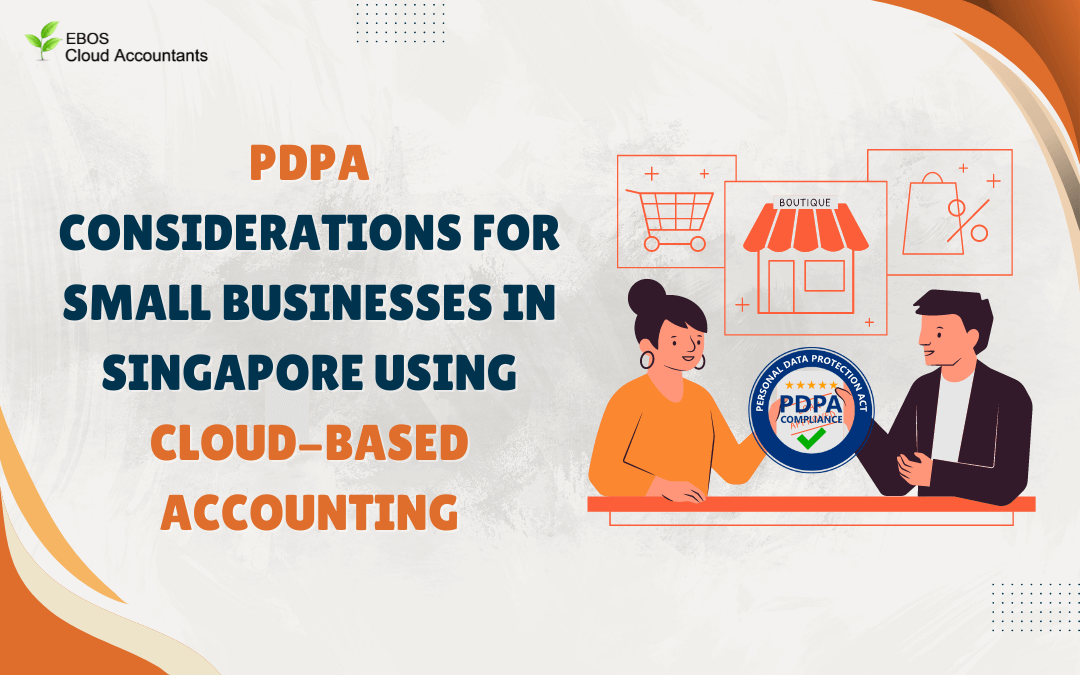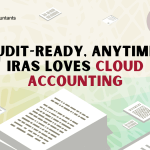A crucial legal framework that controls how companies in Singapore gather, utilize, and retain personal data is the Personal Data Protection Act (PDPA). Respecting the PDPA is crucial for small firms that use cloud-based accounting solutions in order to stay out of trouble with the law and gain the confidence of their clients. Although cloud-based accounting tools provide an affordable option for managing finances, there are concerns associated with data security and privacy. The main PDPA factors for Singaporean small firms implementing cloud-based accounting systems are covered in this article.
Obtaining Consent for Data Collection
Businesses are required by the PDPA to get individuals’ consent before collecting or using their personal data. When small businesses use cloud-based accounting software, managing sensitive financial data—such as personnel records, invoices, and customer information—is usually involved.
To ensure compliance, businesses need to:
- Clearly notify individuals about the types of personal data that will be gathered, why it is being collected, and how it will be used in order to ensure compliance.
- Obtain informed consent prior to data collection.
- Give people the choice to change their minds about processing their data if they no longer want it to be processed.
Startups and SMEs can incorporate this consent procedure into electronic agreements with staff members and clients or during the customer onboarding process.
Ensuring Data Security and Protection
Making certain that personal data is protected from unauthorized access, disclosure, or breaches is one of the main responsibilities under the PDPA. Security is a major problem for cloud-based accounting solutions because they store sensitive data on distant computers.
Cloud service providers (CSPs) with robust data protection standards are the ones that small organizations should use. These include:
- Data Encryption: To avoid unwanted access, make sure the platform encrypts data while it’s being transferred and while it’s being stored.
- Access Controls: Implement role-based access controls to limit data access to authorized personnel only. This minimizes the risk of internal breaches.
- Regular Security Audits: To make sure the system’s security measures are up to date against new threats, choose suppliers who carry out regular audits and updates.
Furthermore, companies ought to set up internal data protection procedures, like requiring multi-factor authentication (MFA) and strong passwords for access to cloud-based applications.
Data Retention and Disposal
According to the PDPA’s Retention Limitation Obligation, personal information must only be kept for as long as is required for administrative or legal reasons. Although cloud-based solutions make data storage easier, small businesses need to make sure that data is not stored forever without a good cause.
To comply with the PDPA, businesses should:
- Establish explicit data retention policies outlining the duration for which certain categories of data (such as customer transactions or employee payroll) will be kept on file in order to comply with the PDPA.
- Provide the cloud platform with capabilities for automatic deletion or archiving when the retention period has passed.
- Make sure that data is disposed of appropriately and securely when it is no longer needed to avoid misuse or unapproved recovery.
Managing Data Transfers Across Borders
Numerous cloud-based accounting systems save their data on servers that are situated outside of Singapore. Businesses are required by the PDPA’s move Limitation Obligation to guarantee that any personal data they move outside is safeguarded by comparable data protection standards.
Small companies ought to:
- Verify whether their CSP uses data centers located abroad to store or process data.
- To offer protection that is comparable to the PDPA, make sure the CSP conforms with international data protection requirements, such as GDPR.
- To prevent problems with cross-border data transfer, think about selecting cloud providers that have local data centers in Singapore.
Accountability and Documentation
Small enterprises are required by the PDPA’s Accountability Obligation to prove that they are in compliance with data protection regulations. To do this, thorough documentation of data management procedures—including the gathering, handling, sharing, and storing of personal data—must be kept.
Businesses should:
- Maintain thorough records of consent forms, data security protocols, and personal data audit trails.
- In order to guarantee PDPA compliance, conduct routine internal reviews or audits.
- To specify roles and procedures for data protection, create a Data Protection Management Programme (DPMP).
Conclusion
Adhering to the PDPA is essential for small businesses in Singapore that use cloud-based accounting software in order to safeguard customer data and stay out of trouble with the law. Businesses may protect sensitive data while taking advantage of cloud technology by carefully choosing cloud providers, guaranteeing data security, controlling retention and disposal rules, and handling cross-border data flows.
Check out our website at https://ebos-sg.com/ to explore more articles and discover how our Cloud Accountant Services can support you on your business.







